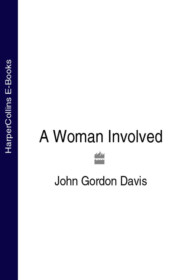По всем вопросам обращайтесь на: info@litportal.ru
(©) 2003-2024.
✖
Unofficial and Deniable
Автор
Год написания книги
2018
Настройки чтения
Размер шрифта
Высота строк
Поля
At noon the next day a police party went out to his boat, alerted by Mrs Doris Johnston who had complained to them that Josephine Harker still had not reported to Immigration Department. The Commissioner of Police, Joshua Humphrey, found Harker sitting in the saloon of his yacht, ashen, starting on a new bottle of rum. Harker looked up and said:
‘I want to report a person missing on the high seas …
Joshua Humphrey, portly, black, with forty years’ experience, suspected immediately that Sinclair Jonathan Harker was guilty as sin; ‘Sin-clear Harker the sinful sailor,’ he dubbed him. And when he went into Jack Harker’s history and learned that he had been a career officer in the Rhodesian army battling freedom-fighters until the bitter end of that long, nasty, bush war, he was sure. But when he learned that, at the end of that war, Harker had been snapped up by the South African Defence Force to fight in their bush war in Angola against the ANC guerrillas and the Cuban army, Commissioner Joshua Humphrey, a devout Africanist, was downright convinced of his guilt.
‘An’ what you bin doin’ since you stopped being a soldier for apartheid, Major Harker?’
‘A publisher. And I was never a soldier for apartheid – I was a soldier against communism.’
Joshua Humphrey found the distinction a metaphysical one but decided not to argue. ‘A publisher? How does a military man become a publisher, sir? Where?’
‘In New York. Commissioner, I’m very traumatized and I feel your attitude is persecutory.’
‘In New York, huh?’
The Commissioner was smart enough to know his lack of real experience. It was a relief to share responsibility and telephone the US Coast Guard in St Thomas and ask, as a favour, whether an officer experienced in investigations on the high seas would come over to take a look at this case.
The Virgin Islands, with balmy turquoise bays and white beaches, interlaced with exotic coral reefs, are very beautiful, possibly the best real estate in the world, but commercially they are good for little more than offshore banking and tourism. Named for their unspoilt beauty, they were colonized by Great Britain and Denmark as bases from which to battle the Spaniards and the pirates who plagued the merchantmen carrying the spoils of the New World back to Europe. Sugar plantations were developed, but the problem was labour: the tropical heat made the cane fields unworkable by white men; they simply did not have the sweat-glands for hard work in such a climate. The solution was black labour – for over two hundred years British and American slaving ships sailed to West Africa and brought back their cargoes of human beings to be sold as slaves to the plantation owners. The Virgins, like all the islands arcing across the Caribbean Sea, prospered, despite a series of rebellions by slaves which were ruthlessly suppressed. But then came the Abolition of Slavery Act in Great Britain which decreed that all slaves throughout the British Empire be freed at midnight on 31 December 1834.
Thus the basic economy of the Caribbean was dislocated: the plantation owners returned to Europe, the cane fields went to ruin, the erstwhile slaves scratched a subsistence living. Denmark sold her share of the Virgin Islands to the United States of America; the British hung on to their share of the islands until the Wind of Change swept Africa, whereupon she granted independence to all her colonies. But, unlike the newly independent African states, the Caribbean islanders spoke no African language, the only culture they knew was that of their colonial masters and they clung to that. Joshua Humphrey, Commissioner of Police, great grandson of slaves, was proud of his British heritage. He had something very important in common with Lieutenant-Commander Albert Smith of the US Coast Guard: both were proud to be black descendants of slaves, determined to show they could do their jobs as well as any white man, and both deeply resented South Africans because of their former politics. And now here sat a South African, a former senior officer in the South African army, with a story of his American wife’s mysterious disappearance.
‘Where exactly did this take place, Major?’ Smith asked, his pen poised.
Harker took a note from his pocket with trembly fingers. He handed it across the desk. ‘Those are the coordinates I got from my satellite-navigator when I woke up and found Josephine missing.’
Smith consulted a chart on the desk. He carefully marked in the coordinates with a parallel ruler.
‘But,’ he said, ‘that means she disappeared south east of Florida, in American waters.’
‘I thought they were international waters.’
Smith smiled. ‘Come on, Major, you’re a military man who can read maps, you know enough law to know where’s “high seas” and where’s territorial waters.’ He paused for a response, then continued: ‘But no matter what you thought, why didn’t you sail back to Florida, back to Miami or Key West to report to the police? They were less than two hundred miles away, and the winds would have been in your favour. Why did you go a thousand miles or more, against the wind, into the Atlantic, all the way to the Virgin Islands to report?’
Harker wiped a hand down his gaunt face. ‘I just didn’t think of it. I was distraught. Exhausted … We were heading for the Virgin Islands when this accident happened and I just carried on.’
Smith sat back. ‘So seven days later you arrived here. What time was that?’
‘About eight o’clock in the morning.’
‘And this was your first stop in the Virgins?’
‘Yes.’
‘Well,’ Smith said with satisfaction, ‘it was recorded by our Coast Guard station that you stopped in the American Virgins for several hours the night before last.’
‘Oh,’ Harker said, ‘that. But I only anchored, I didn’t go ashore.’
‘But you “stopped”,’ Humphrey insisted. ‘Why did you not go ashore, to the police, to report Josephine’s disappearance?’
Harker closed his eyes. ‘Because,’ he said tensely, ‘I needed to sleep.’
‘So why didn’t you go ashore to report after you slept?’
‘Because it was still dark. I thought it better to wait until daylight when senior police officers would be at work, not juniors on night duty.’
Humphrey smirked. Smith said: ‘Not because you thought the US Virgins police might be more efficient and therefore more dangerous to you? Seeing Josephine was American and she disappeared in American waters off an American boat.’
Harker’s nerves were ragged. ‘No. And I’ve told you I thought she’d been lost in international waters.’
Both officials smirked. ‘But you reached Tortola at about eight o’clock that morning,’ Smith said. ‘Yet you didn’t report to this police station at all – they came to your boat, the next day. Only then did you report anything.’ Smith looked at him. ‘How come, Major?’
‘Because I was exhausted after my ordeal – seven days at sea alone. I needed to sleep some more.’
‘But,’ Smith said, ‘Mr Humphrey says you had been drinking when he went out to your boat.’
‘When I woke up I had a few drinks. To pull myself together before reporting.’
‘But what did you do yesterday, when you arrived?’
Harker closed his eyes. ‘I sent a fax to Josephine’s father from the American Express office, informing him of her death.’
‘Why didn’t you telephone?’
‘Because,’ Harker said tensely, ‘of the emotion. I wanted him to be informed before I telephoned and we all burst into tears.’
‘I see …’ Smith nodded. ‘Not because you didn’t want to answer awkward questions? And then you returned to your boat to rest?’
Harker hesitated an instant. ‘Yes.’
Smith smiled. ‘Not so, Major. You made another phone call. American Express gave us the number. Who to?’
Harker closed his eyes again, sick in his guts. ‘I forgot. To Josephine’s insurance company.’
Humphrey’s face creased in theatrical wonder: ‘But how can you forget? And why, Major? What was the hurry? Why was that more important than reporting her death to me, the police?’
‘I was in the American Express offices, I had the facilities available, I simply took the opportunity to do the responsible thing.’
Humphrey snorted. ‘An’ what did you ask the insurance company?’
‘I simply reported Josephine’s death.’
‘You didn’t ask how to collect the insurance?’
Harker hesitated. ‘No. I mean I simply asked what formalities were required of me generally.’
‘Formalities? For what?’
Harker sighed.











